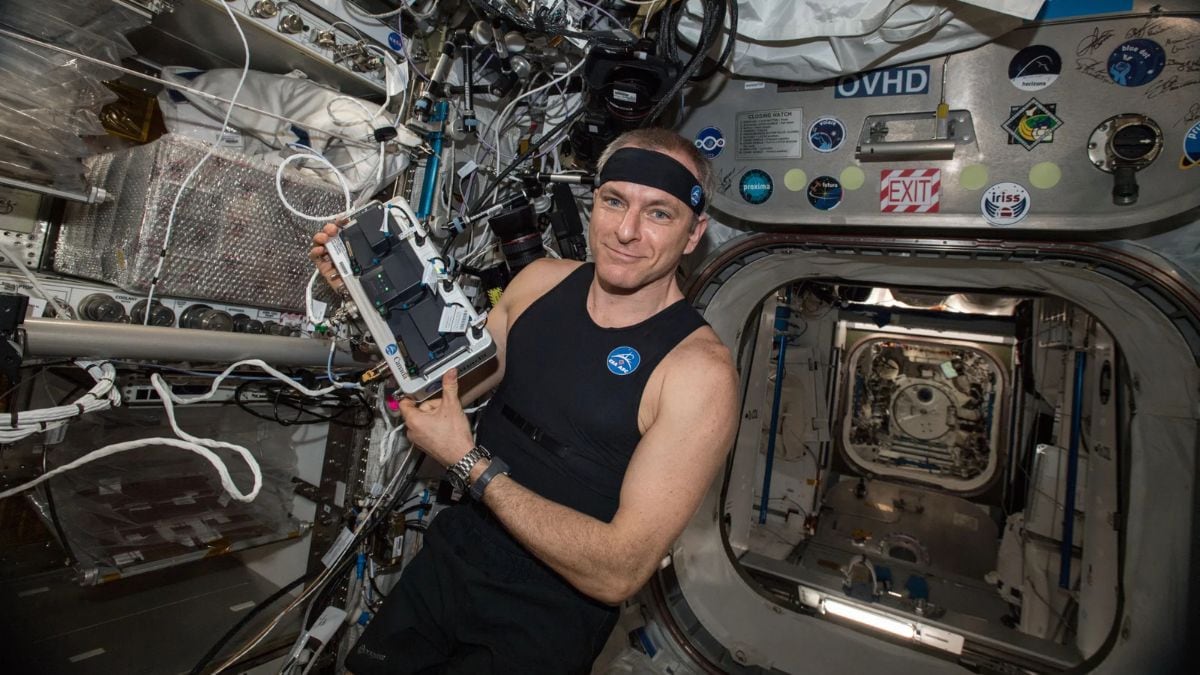Astronauts aboard the International Space Station (ISS) undergo rigorous efforts to maintain optimal physical, cognitive, and sensory functions while adapting to the challenges of spaceflight. The impact of microgravity on human physiology is closely monitored through ongoing studies. These investigations aim to understand changes in muscle fitness, cardiovascular health, sensory perception, and cognitive performance to develop countermeasures that ensure astronauts remain effective in their duties during missions and upon return to Earth.
Cardiovascular Health Monitoring
According to the Space Health investigation by the Canadian Space Agency (CSA), wearable Bio-Monitor sensors are being used to track vital parameters, such as pulse rate, blood pressure, and breathing rate. This research evaluates cardiovascular deconditioning in microgravity, potentially paving the way for autonomous health-monitoring systems for future missions. Reports indicate that similar technologies could benefit cardiovascular health monitoring for individuals on Earth, especially in remote areas.
Muscle Fitness and Strength Assessment
As per an official press release by NASA, the European Space Agency (ESA) is utilizing Myotones, a compact, non-invasive device, to measure muscle stiffness in astronauts. Data gathered during this investigation show that current exercise regimens aboard the ISS effectively mitigate muscle loss in most cases. Scientists suggest that such devices could help optimize targeted exercise routines for specific muscle groups during long-duration missions. Earth applications for this technology include remote healthcare settings where conventional diagnostic tools are unavailable.
Cognitive Performance and Stressors
Studies on the ISS have shown that astronauts face mild cognitive changes, including variations in processing speed and memory, due to factors such as radiation and sleep disruptions. A battery of tests conducted through the Standard Measures program suggests that these effects remain stable over six-month missions. Post-flight evaluations highlight the importance of simulations to aid astronauts in adjusting quickly to operational demands upon returning to Earth.
Sensory Perception in Microgravity
As reported in the VECTION study by the CSA, astronauts' ability to perceive object height remains intact shortly after arriving in space. Researchers note that while immediate adjustments are unnecessary, spacefarers should be informed about potential long-term changes in sensory perception. This research underscores the importance of maintaining spatial awareness during missions to ensure operational safety.
For the latest tech news and reviews, follow Gadgets 360 on X, Facebook, WhatsApp, threads and Google NewsFor the latest videos on gadgets and tech, subscribe to our YouTube channelIf you want to know everything about top influencers, follow our in-house Who'sThat360 on Instagram and YouTube,

Instagram Announces Edits App With AI Animation and More Features for Creators
iPhone SE (2022) Inventory Running Low as iPhone SE 4 Launch Nears: Mark Gurman



